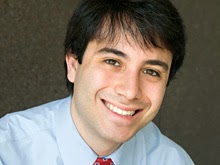UNC Chapel Hill researchers are projecting that by 2050, North Carolina could well have its own version of the so-called 'Megalopolis' that is today's Washington-Baltimore-Philadelphia-New York City-Boston corridor. A new study by the Carolina Population Center at UNC suggests that by 2050, the Charlotte-Greensboro-Raleigh corridor will have grown into an urbanized corridor similar to the one comprised by the major metros of the Northeast. (Check out the video simulation below showing what the mapped-out version of the N.C. data looks like over time).
Thursday, November 21, 2013
Is a Charlotte-Triad-Triangle 'Megalopolis' in North Carolina's future?
Wednesday, November 6, 2013
More development in FreeMore West/Freedom Drive corridor
Stophel Commercial Properties says it recently closed on the 55,000-square-foot former Berry Manufacturing building at 1921 Freedom Drive. It's the latest bit of development on the still-blossoming area around West Morehead Street and Freedom Drive that boosters have dubbed FreeMore West. Stophel plans to house several of its businesses -- Carpet One and the Stophel REO Group -- in the building, which it bought from F&N Family Partnership of Lawrence, N.Y., for an undisclosed sum. (The property has an assessed value of $1.3 million). Jim McAuliffe of NMKT Commercial represented Stophel in the deal; Brooks Whiteside of Whiteside Industrial represented the seller.
The area continues to develop nicely. Years ago, I used to get my beloved but constantly malfunctioning '95 Audi fixed at the repair shop at Freedom and Morehead. Wasn't much else happening to bring me to that area then. But now the repair shop is Pinky's Westside Grill (love that they kept the VW Beetle on the roof), one of an array of cool new eateries in the area. More residential development is on the way as well. Ryan Homes and the Simonini Group broke ground in September on their planned 251-home project at Bryant Park, situated on 30 acres on Millerton Avenue off West Morehead. Nice to see the area continuing to bloom.
Monday, November 4, 2013
World of Outlaws dirt track race: Cabarrus County's $8 million mudfest
Who knew there were so many dollars in the dirt?
 |
| Courtesy CMS/HHP Photo |








